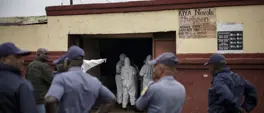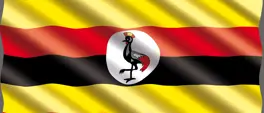Development project risks uprooting Benin fishing communities
AFP
5 June 2024 | 10:46A vast project backed by French development agency AFD, called "Porto-Novo green city", has already changed the lagoon landscape by allowing the construction of a promenade and infrastructure developments such as lighting, roads and sanitation.
PORTO-NOVO - Working as a fisherman his whole life on the lagoon near Benin's capital Porto-Novo, Antoine Ababe Houssou always believed he would spend the rest of his days on the water banks where he made his home and his living.
Now the 62-year-old retiree fears he will face upheaval from a development project his fishing community expects to push them off the land.
"I have nowhere to go if they take me out of here," Houssou said.
Part of a larger green tourism development project by local authorities threatens to uproot people who live along the lagoon between Lake Nokoue, just behind the economic capital Cotonou, and the Nigerian megacity Lagos.
A vast project backed by French development agency AFD, called "Porto-Novo green city", has already changed the lagoon landscape by allowing the construction of a promenade and infrastructure developments such as lighting, roads and sanitation.
But it affected only 135 residents who were already "compensated and supported" in their resettlement, said Jerome Bertrand-Hardy, director of the AFD in Benin.
"The objective is to revitalise and enhance the neighbourhoods close to the lagoon to bring them back to life," Bertrand-Hardy said.
The parallel sanitation project by the Porto-Novo local government will dislodge more people, though officials could not provide any figures.
The broader green city project comes after Beninese President Patrice Talon launched several schemes since he came to power in 2016 aimed at making Benin more attractive for tourism.
For now, the inhabitants of the lagoon banks around Porto-Novo, who make their living mainly from fishing, are holding on to see how they will be affected by the sanitation development.
"Ten months ago, city hall came to notify us that we have one month to leave and we formed an association to defend ourselves," Leopold Padonou, a 44-year-old fish farmer, told AFP.
"We wrote to everyone, but we got no response."
He said that according to the community estimates, about 1,000 households are affected, roughly 5,000 people in total.
'NETS ON THE PLANET'
Two months ago, city officials marked the houses to be demolished with a red cross but "no one gave us details", said Padonou, who was born and raised in the neighbourhood.
The fish farmer said he recognises development of the lagoon banks has made it possible to improve infrastructure.
"We now have lighting, the roads come to us, there are pedestrian crossings... They have built infrastructure for us so we can live well," he said.
"But we are not allowed to enjoy it when we are already being told about eviction... And to go where?"
Fisherman Tite Kounasso, 52, said their livelihood depended on the lake's waters.
"We cannot throw nets on the asphalt. We have not learned any other trade, let us be left on the bank," he said.
But like others, fish and crab seller Agathe Gandonou says she has not given up the fight yet.
"All our strength is in the water and we will fight to stay here."
The international NGO Justice and Empowerment Initiatives is working to help residents make sure their rights are respected.
"We must give the power to the community to defend itself. We want an agreement, a win-win partnership," said Ange-Marie Esse from the NGO.
'MODERN VILLAGE'
The municipality of Porto-Novo says the large-scale project was initiated to put an end to the chaotic settlement of the banks, but would take into consideration environmental preservation.
"It is a climate change resilience project which aims to preserve the natural bank of Porto Novo while developing ecotourism," Porto-Novo mayor Charlemagne Yankoty told AFP.
For displaced populations, the mayor said the municipal council has already released one hundred million CFA francs (around $166,000) to help.
"Those who occupy this bank are not owners for the most part and they are also too exposed to water-borne diseases," Yankoty said.
Not everyone will be required to leave, he said, because otherwise the banks would be lifeless.
The mayor said a "modern fishing village" will soon be built, without giving details on the timetable or the number of people who will be relocated there.
"All the city's tourist infrastructure is under construction to strengthen our tourist attractiveness," he said.















